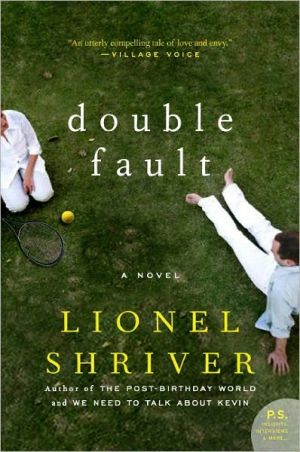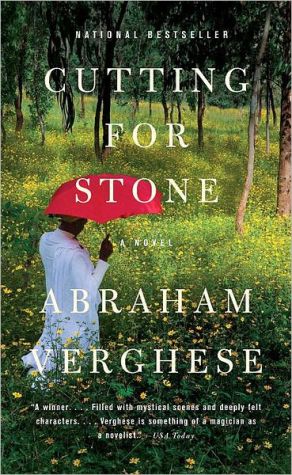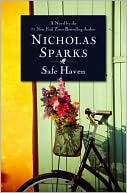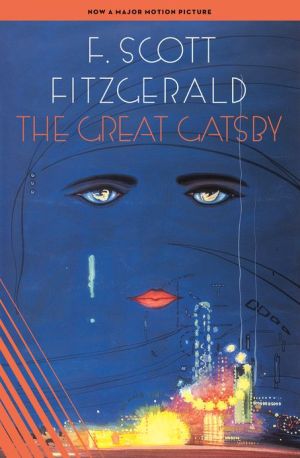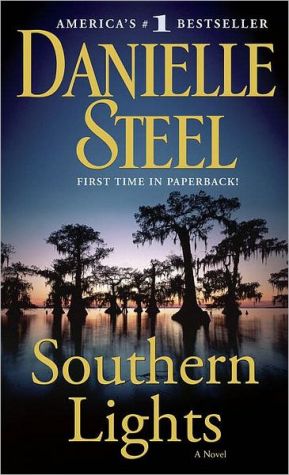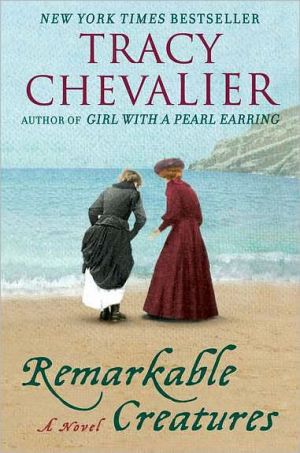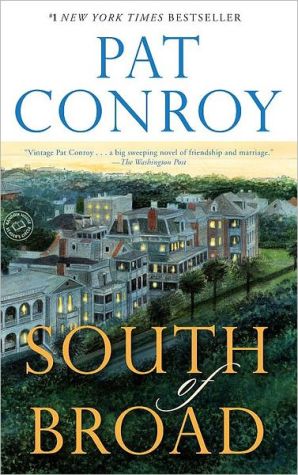Double Fault (P.S. Series)
Tennis has been Willy Novinsky's one love ever since she first picked up a racquet at the age of four. A middle-ranked pro at twenty-three, she's met her match in Eric Oberdorf, a low-ranked, untested Princeton grad who also intends to make his mark on the international tennis circuit. Eric becomes Willy's first passion off the court, and eventually they marry. But while wedded life begins well, full-tilt competition soon puts a strain on their relationship—and an unexpected accident sends...
Search in google:
Tennis has been Willy Novinsky's one love ever since she first picked up a racquet at the age of four. A middle-ranked pro at twenty-three, she's met her match in Eric Oberdorf, a low-ranked, untested Princeton grad who also intends to make his mark on the international tennis circuit. Eric becomes Willy's first passion off the court, and eventually they marry. But while wedded life begins well, full-tilt competition soon puts a strain on their relationship—and an unexpected accident sends driven and gifted Willy sliding irrevocably toward resentment, tragedy, and despair. From acclaimed author Lionel Shriver comes a brilliant and unflinching novel about the devastating cost of prizing achievement over love.Publishers WeeklyAn unabashed messagelove and ambition don't mixflashes repeatedly between the lines of this earnest narrative about two tennis pros who must choose between their marriage and the game. In her sixth novel, Shriver (The Female of the Species) has imagined a credible marriage crisis: when Wilhelmina (Willy) Novinski and Eric Oberdorf meet, Willy already has standing in the ranks of pro tennis, and Eric, fresh out of Princeton, is scrambling to organize his ascent. Together and apart, they hit the circuit, gathering ranking points in a competitive, erotic struggle that infuses their marriage with rising tension. Their roles reverse: Willy grudgingly acknowledges Eric's skill, then struggles to beat him and ends up humiliated as he masters her own game and uses it against her. Eventually, Willy succumbs to the fear of failure that ensures the failure she fears. Shriver stacks the deck against Willy, whose defeatist family and embittered coach have filled her with mean-spirited insecurities, so that her final sacrifice for Eric (equally cocky but more individualized and just plain nicer) is also, unfortunately, her only really instinctive, unprogrammed gesture in the book. In a lengthy letter included with the galley, Shriver explains that she wrote this novel as a cautionary tale about the fatal mix of love and ambition. By substituting simple "truths" for complex, dynamic characters, this didactic novel fulfills her purpose all too well. (Aug.)
Double Fault\ A Novel\ Chapter One\ At the top of the toss, the ball paused, weightless. Willy's arm dangled slack behind her back. The serve was into the sun, which at its apex the tennis ball perfectly eclipsed. A corona blazed on the ball's circumference, etching a ring on Willy's retina that would blind-spot the rest of the point.\ Thwack. Little matter, about the sun. The serve sang down the middle and sped, unmolested, to ching into a diamond of the chain-link fence. Randy wrestled with the Penn-4. It gave him something to do.\ Willy blinked. "Never look at the sun" had been a running admonition in her childhood. Typical, from her parents: avert your eyes from glory, shy from the bright and molten, as if you might melt.\ A rustle of leaves drew Willy's gaze outside the fence to her left. Because the ball's flaming corona was still burned into her vision, the stranger's face, when she found it, was surrounded by a purple ring, as if circled for her inspection with a violet marker. His fingers hooked the galvanized wire. He had predatory eyes and a bent smile of unnerving patience, like a lazy lion who would wait all day in the shade for supper to walk by. Though his hairline was receding, the lanky man was young, yet still too white to be one of the boys from nearby Harlem scavenging strays for stickball. He must have been searching the underbrush for his own errant ball; he had stopped to watch her play.\ Willy gentled her next serve to Randy's forehand. There was no purpose to a pick-up game in Riverside Park if she aced away the entire set. Reining in her strokes, Willy caressed the ball while Randywalloped it. As ever, she marveled at the way her feet made dozens of infinitesimal adjustments of their own accord. Enjoying the spontaneous conversation of comment and reply, Willy was disappointed when her loping backhand tempted Randy to show off. Ppfft, into the net.\ This late in the first set, she often gave a game away to keep the opposition pumped. But with that stranger still ogling their match from the woods, Willy resisted charity. And she wasn't sure how much more of this Randy Ravioli (or whatever, something Italian) she could take. He never shut up. "Ran-dee!" echoed across all ten courts when his shot popped wide. Between points Randy counseled regulars in adjoining games: "Bit too wristy, Bobby old boy!" and "Bend those knees, Alicia!" Willy herself he commended: "You pack quite a punch for a little lady." And the stocky hacker was a treasure trove of helpful advice; he'd demonstrated the western grip on the first changeover.\ She'd smiled attentively. Now up 4-O, Willy was still smiling.\ The Italian's serve had a huge windup, but with a hitch at the end, so all that flourish contributed little to the effort. More, intent on blistering pace, Randy tended to overlook the nicety of landing it in the box. He double-faulted, twice.\ As they switched ends again, Willy's eyes darted to her left. That man was still leering from behind the fence. Damn it, one charm of throwaway games in Riverside was not to be scrutinized for a change. Then, he did have an offbeat, gangly appeal . . . Ignoring the passerby only betrayed her awareness that he was watching.\ Newly self-conscious, Willy bounced the ball on the baseline six, seven times. If her coach knew she was here he would have her head, as if she were a purebred princess who mustn't slum with guttersnipes and so learn to talk trash. But Willy felt that amateurs kept you on your toes. They were full of surprises-inadvertently nasty dinks from misconnected volleys, or wild lobs off the frame. And many of Riverside's motley crew exuded a nutritious exultation, losing with a shy loss for words or a torrent of gee-whiz. With Randy she was more likely to earn a huffy see ya, but she preferred honest injury to the desiccated well done and two-fingered handshake of Forest Hills.\ Besides, Riverside Park was just across the street from her apartment, providing the sport a relaxing easy-come. The courts' wretched repair recalled the shattered Montclair asphalt on which Willy first learned to play: crabgrass sprouted on the baseline, fissures crazed from the alley, and stray leaves flattened the odd return. The heaving undulation of courts four and seven approximated tennis on the open sea. Poor surface mimicked the sly spins and kick-serves of cannier pros, and made for good practice of split-second adjustment to gonzo bounces. Craters and flotsam added a touch of humor to the game, discouraging both parties from taking the outcome to heart. An occasional murder in this bosky northern end of the park ensured generously available play time.\ In the second set Randy started to flail. Meanwhile their audience followed the ball, his eyes flicking like a lizard's tracking a fly. He was distracting. When the man aped "Ran-dee!" as the Italian mishit another drive, Willy's return smacked the tape.\ "You threw me off," she said sharply.\ "It shouldn't be so easy." The onlooker's voice was deep and creamy.\ Abruptly impatient, Willy finished Randy off in ten minutes. When they toweled down at the net post, Willy eyed her opponent with fresh dismay. From behind the baseline Randy could pass for handsome; this close up, he revealed the doughy, blurred features of a boozer.\ Emerging from his towel, Randy grumbled, "I've been hustled."\ "There was no money on the line," she chided.\ "There's always something on the line," he said brusquely, "or you don't play."\ Leaning for his racket case, Randy grabbed his spine. "Oooh, geez! Threw my back last week. Afraid I'm a pale shadow . . ."\ Zipping up, he explained that his racket had "frame fatigue"; not much better than a baseball bat, capisce?\ Her coach Max often observed, When boys win, they boast; when girls win, they apologize. "I was in good form today," Willy offered. "And you got some pretty vile bounces."\ Double Fault\ A Novel. Copyright (c) by Lionel Shriver . Reprinted by permission of HarperCollins Publishers, Inc. All rights reserved. Available now wherever books are sold.
\ Dallas Morning News"[Lionel Shriver] has written a gorgeous, compelling tragedy in which she stays with her game every step of the way."\ \ \ \ \ Booklist"Shriver’s novel provides an eye-opening and authentic look at the cutthroat world of pro tennis, but it’s more than just a sports expose. It’s the melancholy and tempestuous story of two people whose love couldn’t survive their own selfishness."\ \ \ New York Times Book Review"Shriver explores the obsessive side of Willy’s character and confronts some disconcerting truths that defy a pat, politically correct resolution….Shriver shows in a masterstroke why character is fate and how sport reveals it."\ \ \ \ \ New York Newsday"Lionel Shriver has something new….Whether you go for tennis or not, the furious back-and-forth of the game in Double Fault can hypnotize you….Shriver brings an insider’s knowledge and a truly athletic prose to her descriptions of what happens on the court."\ \ \ \ \ The Observer (London)"A brilliant tale of doomed love….This is not a novel about tennis or rivalry; it’s about love, marriage and the balance of power in relationships….Double Fault is a compelling and playfully ironic take on the sex wars, blistering with…brilliant writing and caustic language."\ \ \ \ \ Harry Crews"I can only hope that with Double Fault Lionel Shriver recieves the acclaim she has so long deserved...It belongs on that shelf of books you will return to again and again."\ \ \ \ \ Scott Spencer"Double Fault combines the urgency of a page-turner with the satisfactions of fine style... powerful, provocative, and unrelenting."\ \ \ \ \ Dallas Morning News“[Lionel Shriver] has written a gorgeous, compelling tragedy in which she stays with her game every step of the way.”\ \ \ \ \ Booklist“Shriver’s novel provides an eye-opening and authentic look at the cutthroat world of pro tennis, but it’s more than just a sports expose. It’s the melancholy and tempestuous story of two people whose love couldn’t survive their own selfishness.”\ \ \ \ \ New York Times Book Review“Shriver explores the obsessive side of Willy’s character and confronts some disconcerting truths that defy a pat, politically correct resolution….Shriver shows in a masterstroke why character is fate and how sport reveals it.”\ \ \ \ \ New York Newsday“Lionel Shriver has something new….Whether you go for tennis or not, the furious back-and-forth of the game in Double Fault can hypnotize you….Shriver brings an insider’s knowledge and a truly athletic prose to her descriptions of what happens on the court.”\ \ \ \ \ The Observer (London)“A brilliant tale of doomed love….This is not a novel about tennis or rivalry; it’s about love, marriage and the balance of power in relationships….Double Fault is a compelling and playfully ironic take on the sex wars, blistering with…brilliant writing and caustic language.”\ \ \ \ \ Publishers WeeklyNovelist Shriver offers this aptly named romance about two aspiring tennis pros who fall in love and marry only to come to blows on the court and subsequently at home. The narration by soap-opera actress Renée Raudman brings an air of theatricality to the occasionally stiff prose. Under her command, the story becomes an old-fashioned romance replete with one-dimensional characters (who actually become quite likable through Raudman's well-crafted tone) and overwrought scenarios that only serve to make listening all the more enjoyable. Fans of the genre will be giddy with delight, but those looking for a serious love story may be disappointed. A Harper Perennial hardcover. (May)\ \ \ \ \ Publishers Weekly\ - Publisher's Weekly\ An unabashed messagelove and ambition don't mixflashes repeatedly between the lines of this earnest narrative about two tennis pros who must choose between their marriage and the game. In her sixth novel, Shriver (The Female of the Species) has imagined a credible marriage crisis: when Wilhelmina (Willy) Novinski and Eric Oberdorf meet, Willy already has standing in the ranks of pro tennis, and Eric, fresh out of Princeton, is scrambling to organize his ascent. Together and apart, they hit the circuit, gathering ranking points in a competitive, erotic struggle that infuses their marriage with rising tension. Their roles reverse: Willy grudgingly acknowledges Eric's skill, then struggles to beat him and ends up humiliated as he masters her own game and uses it against her. Eventually, Willy succumbs to the fear of failure that ensures the failure she fears. Shriver stacks the deck against Willy, whose defeatist family and embittered coach have filled her with mean-spirited insecurities, so that her final sacrifice for Eric (equally cocky but more individualized and just plain nicer) is also, unfortunately, her only really instinctive, unprogrammed gesture in the book. In a lengthy letter included with the galley, Shriver explains that she wrote this novel as a cautionary tale about the fatal mix of love and ambition. By substituting simple "truths" for complex, dynamic characters, this didactic novel fulfills her purpose all too well. (Aug.)\ \ \ \ \ Library JournalA marriage wrecked on the shoals of ambition is the theme of Shriver's intriguing sixth novel (The Female of the Species, LJ 2/15/87). When 23-year-old Willy Novinsky meets and marries Eric Oberdorfer, she's a rising professional tennis star and he's a Princeton graduate who just plays for the love of the game. As Eric's tennis prowess increases and his ranking in the men's professional circuit rises, Willy suffers an injury and then a loss of confidence, both of which cause her rankings to plummet. Willy must decide whether her love for her husband is greater than her desire for a number-one ranking in women's tennis and how much she will sacrifice to achieve her goal. Shriver's challenge here is to convince the reader to empathize with Willy, despite her unattractive behavior and misguided choices. Shriver is a talented enough writer to win over some readers, but many will quickly lose patience with Willy and want to tell her to simply grow up and set her priorities straight. Recommended for public libraries.Nancy Pearl, Washington Ctr. for the Book, Seattle\ \ \ \ \ Kirkus ReviewsFully using the strongest part of her game—psychological insight—Shriver (The Bleeding Heart, 1990, etc.) tracks the fleeting joy and prolonged despair of a young couple, both rising tennis stars, who find their love imperiled by one another's fierce urge to win.\ "Love me, love my game," says petite, 23-year-old Willy to lanky Eric on their second meeting, after a first encounter in Manhattan's Riverside Park in which Willy cleaned his clock. She's played since she was five and is ranked in the 400's; he's played less than four years, having discovered tennis at 18, but he already has a ranking himself. The pair's mutual attraction turns to romance, and they marry within the year, knowing that being on tour will offer few chances for them to be together. Willy is prepared to suffer Eric's envy as she advances, but she isn't ready for him to season his game as quickly as he does. On their first anniversary, he wins against her for the first time; six months later, they play in a showcase tournament for new talent and he wins his match while she chokes at match point in a humiliating loss. Not long after, in a funk over her mental state, Willy seriously injures her knee. Even when she resumes playing, she's unable to turn things around, while Eric, with a few lucky breaks but also inspired play, moves to the international circuit and continues to win. He's unable to do well in Willy's eyes, however, no matter how hard he tries, and the marriage quickly goes from rocky to ruinous. Willy discovers that she's pregnant just as Eric is preparing to play in the US Open; her announcement of what should have been happy news creates a new crisis, which proves to be the last straw.\ A persistently melodramatic tone doesn't disguise the tragedy in this moving, resonant tale of two sparkling careers and two decent people unable to live in harmony.\ \ \
